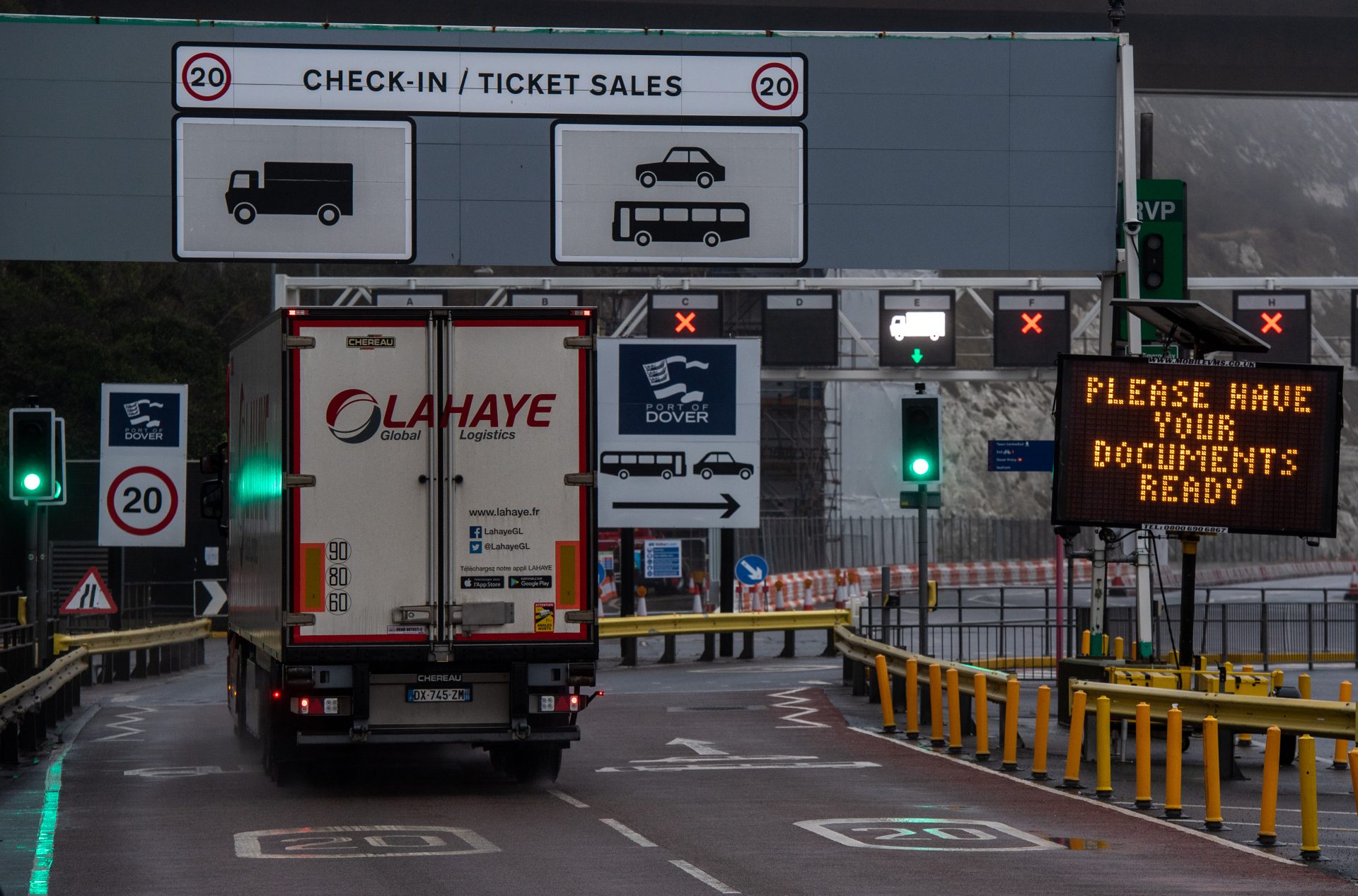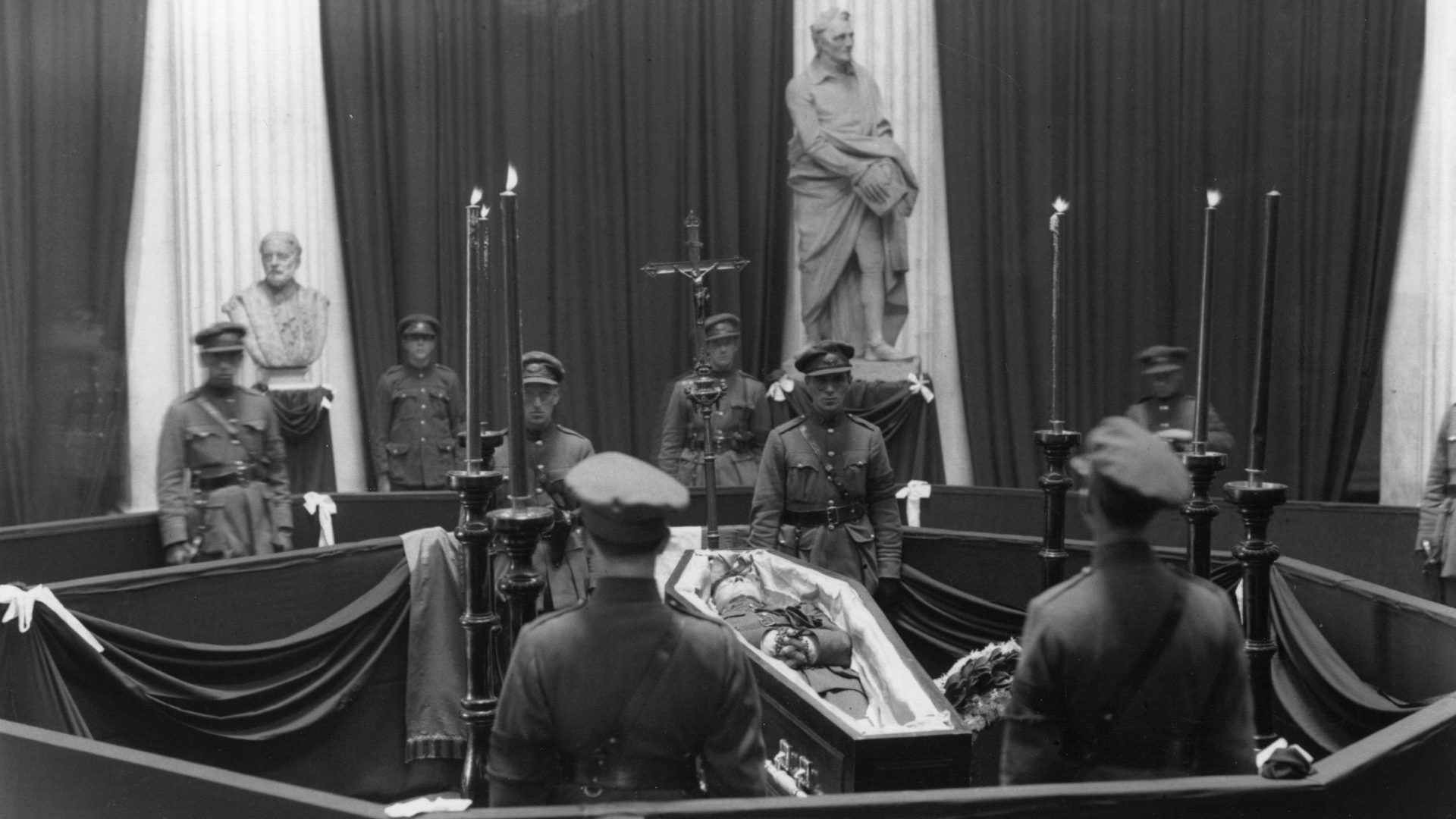It has been the perfect cover for Brexit but the effects of Covid are now coming to an end and like a retreating tide, it is revealing what is really going on beneath the surface.
The latest quarterly trade figures paint a grim picture of UK trade. Since 2018, which the ONS thinks is the best guide, our exports to the EU have shrunk, from £43.4bn in the second quarter of 2018 to £40billion now.
But even these figures do not give the whole picture. Because as Covid restrictions and disruption ended, the world’s economies woke up and global trade routes reawakened. Or they did for nearly everyone.
For some strange reason Global Britain – the new world-beating behemoth, suddenly freed from the chains of EU control and ready to stride around the world cutting new trade deals left, right and centre – seems to have stayed in bed.
The evidence is clear. The UK is now a less globally important trading nation, is rapidly being left behind by its rivals and trade is becoming a smaller part of its economy. If you don’t trust me you just have to look at the latest analysis from the Office for Budget Responsibility, the government’s own economic watchdog.

It has found that all advanced economies suffered the same collapse of trade during Covid but that the UK has missed out on much of the rebound. All advanced economies’ trade fell by 20% during the first wave of the pandemic, but by the end of last year, while the average advanced economies trade was 3% higher than before Covid, the UK’s remained 12% below. The UK’s trade as a percentage of GDP has collapsed – it is down two and a half times more than other similar countries.
Or, you can look at the more recent work of Oleksandr Shepotylo from Aston University’s Business School and Centre for Business Prosperity. He mined the latest data from UNCTAD, the UN’s trade and development arm and discovered that the UK’s trade has just not kept up with the rest of the world. Global trade has recovered from the Covid pandemic and is now worth £7.7trn, a growth of 20% on its pre-Covid level. Yet the UK’s trade has flatlined. While our rivals like Germany and Japan have seen trade surge by 9%, the USA by 17% and Italy by 23%, the UK has managed to increase its trade by 0.33%. It is barely measurable.
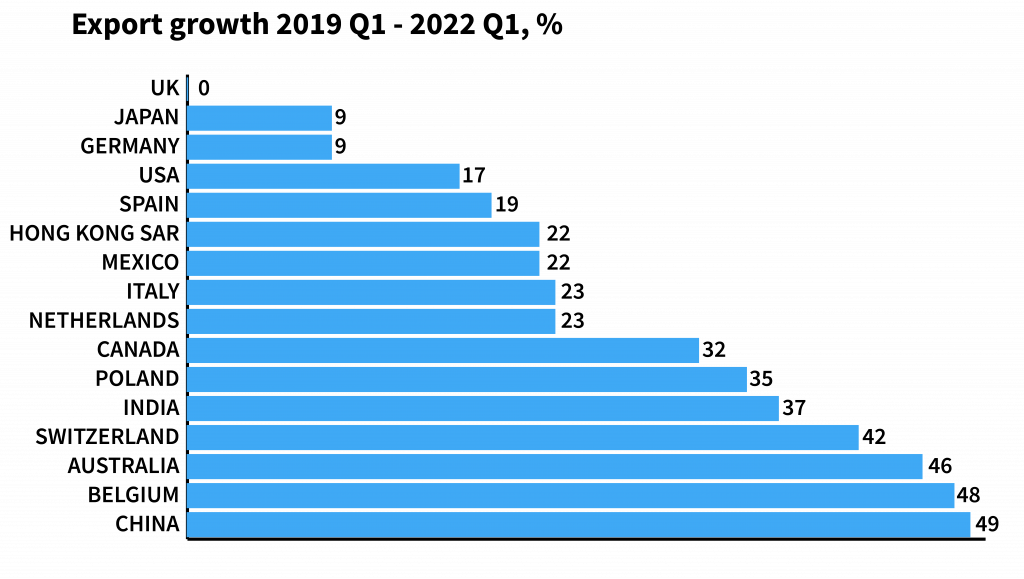
This is a disaster economically. Foreign trade is good for the economy. It improves competition and productivity. For all the ranting about the UK becoming Global Britain the figures show that the opposite is the case; the UK is becoming more insular, is trading less than its rivals and is nowhere near as open as it used to be.
The latest report from the Resolution Foundation and The UK in a Changing Europe think tanks illustrates this problem very clearly. The UK has seen its trade openness decline sharply. France, which has a similar trade profile to the UK, has not suffered anything like as much. This is an indication that Brexit is not just damaging the UK’s trade relationship with the EU but the world. The UK is just a far less attractive place to do business.

One surprising fact is that it is not UK exports to the continent that have fallen so dramatically, but imports from other EU states. This may well be down to the fact that increasing red tape and uncertainty mean a lot of EU companies just aren’t bothering to sell in the UK, while UK firms are still desperate to export and are managing to do so despite the new barriers to trade.
Certainly, looking at Germany’s exports to the UK makes for frightening reading. The UK is just falling behind other countries, as German exports to the world boom, those to the UK have fallen. So has the UK’s importance to Germany as a market for its exporters and a source of imports. The UK was Germany’s ninth largest source of imports in 2016; now it is 13th. It is also about to drop out of the list of top ten export markets for Germany, to be replaced by the Czech Republic.
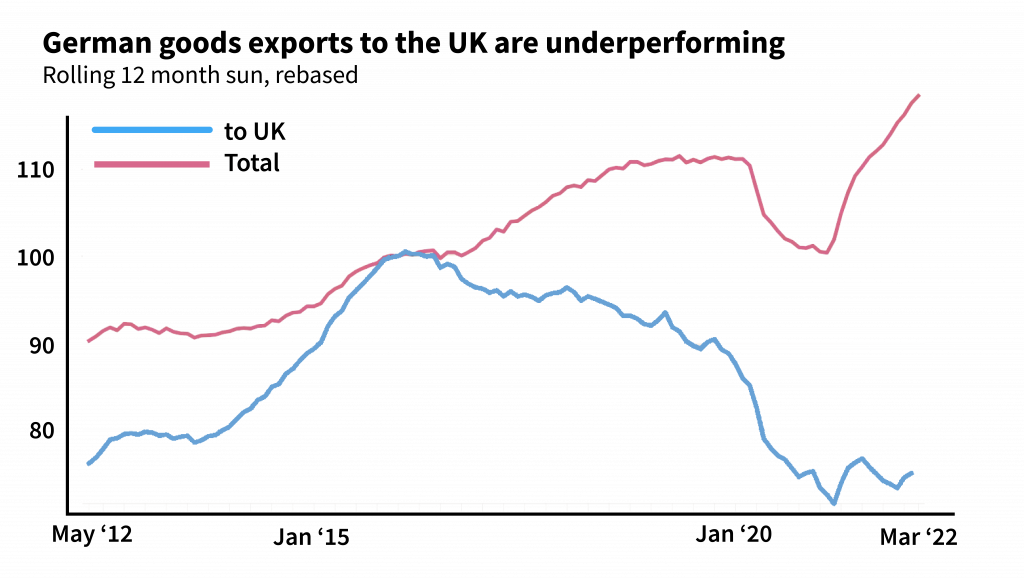
It seems that while British industry has had little choice but to take on the added costs if it wants to export to a market of 447million customers, our former colleagues in the EU have often decided that selling to 66 million Brits is not worth the added bother.
For those who think this is good news as British firms will be forced to use British suppliers, think again. British companies used German, French or Dutch suppliers because they were better and cheaper. Denying them that opportunity forces up their costs and therefore their prices. One reason that Brexit causes higher inflation.
If you are hoping that those trade deals with non-EU countries are going to help fill this gap, then you are going to have a long wait, none are large enough to make any discernible difference to the UK economy.
Interestingly there has so far only been one trade deal that the UK had before Brexit that is better afterwards. That was the one with Japan, which was not just rolled over but slightly improved – hats off to Liz Truss, for once.
Yet it has had no positive effect on our trade with Japan. In fact the opposite has happened. UK trade with Japan has declined. The reason is not hard to find – many Japanese companies used the UK as their bridge into the EU. Now that bridge has been burned, they see no reason to trade via the UK. As a result, many Japanese companies have moved their European headquarters and their money out of the UK, and it shows.
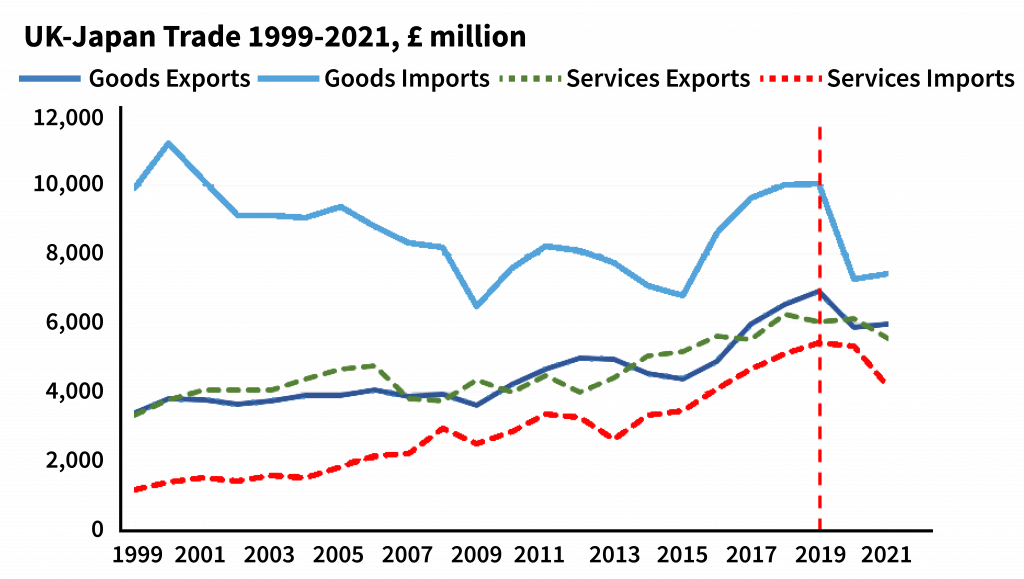
The government’s own figures show that total trade between the UK and Japan was £22.9bn in the four quarters to the end of Q1 2022. That was a decrease of 4.5% on the previous year. UK exports to Japan fell 6% and UK imports from Japan fell by 3%.
It is hardly surprising that trade is so badly affected by Brexit, after all it does little else but pile extra cost and red tape onto business.
There is now endless form-filling that HMRC has stated will cost £7bn a year, new testing and safety regimes that merely copy the existing EU ones and therefore double costs for firms, and delays at the borders. A whole set of new checks are yet to be introduced by the British government.
On top of that the wonderful benefit of being the base of choice for thousands of worldwide firms which wanted an entry into the EU, has gone. You can forget the propaganda about Global Britain, we are now Little Britain and getting smaller every day.
It turns out that shooting yourself in the foot really hurts.


